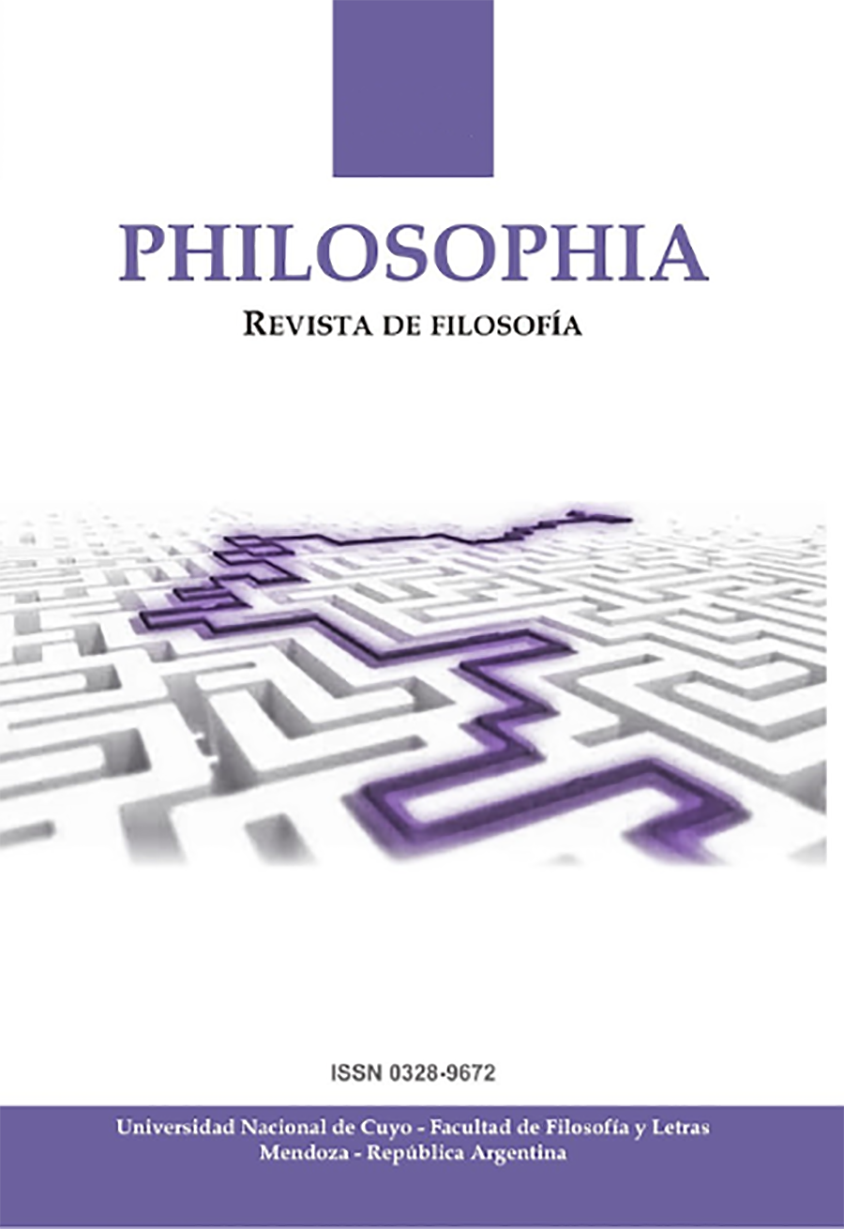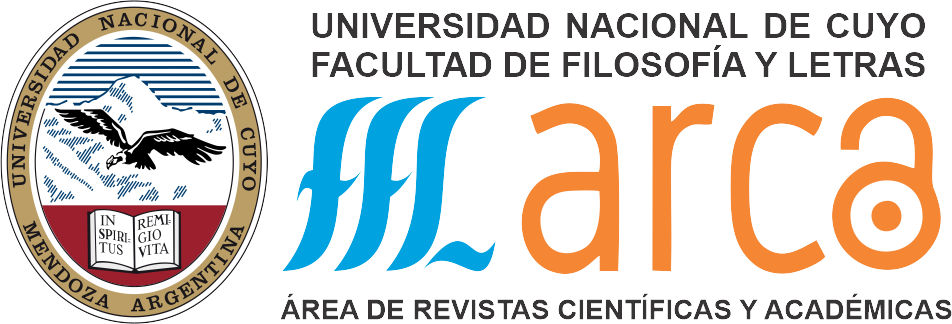Can Pomponazzian Anthropology be called Aristotelian? Interpretation and Overcoming of Aristotle's De anima in Pomponazzian Thought
DOI:
https://doi.org/10.48162/rev.50.012Keywords:
Aristotelianism, Pietro Pomponazzi, intellect, Aristotle, soulAbstract
Official historiography places the Renaissance philosopher Pietro Pomponazzi in the vast and heterogeneous Aristotelian tradition. This position, which in principle is assumed to be truthful by philosophical historiography, however, seems inadequate at least as regards the anthropological aspects of Mantovano's reflection. Therefore, the purpose of this contribution is to show how the anthropology of De immortalitate animae (1516), far from being a faithful Aristotelian doctrine, is instead an original philosophical conception in all respects, although it is masked by its author and presented simply as 'correct interpretation of the Stagirita'. The reflection on the ambiguity and problematic nature of Aristotle's De anima will occupy a large part of the study, since it is precisely the "large mesh" structure of the Aristotelian treatise that has allowed for a rich proliferation of different interpretations which, in fact, were then transformed into real original anthropological doctrines (like that of Pomponazzi).
References
Amerini, Fabrizio. Tommaso d’Aquino. Origine e fine della vita umana. Pisa: ETS, 2009.
Bucci, Onorato e Piatti, Pierantonio. Storia dei Concili Ecumenici. Attori, canoni, eredità. Roma: Città Nuova, 2014.
Cappelletti, J. Angel. La teoria aristotélica de la fantasia, Revista de Filosofía de la Universitad de Costa Rica, 18 (1980): 115-23.
Di Napoli, Giovanni, L’immortalità dell’anima nel Rinascimento. Torino: Società Editrice Internazionale, 1963.
Douglas, Andrew Halliday. Philosophy and Psychology of Piertro Pomponazzi. Cambridge, 1912.
Düring, Ingemaer, Aristotele. Milano: Mursia, 1976.
Engmann, Joyce. Imagination and truth in Aristotle, Journal of the History of Philosophy, 14 (1976): 259-265.
Fiorentino, Francesco. Pietro Pomponazzi. Studi critici sulla scuola bolognese e padovana. Napoli: La Scuola di Pitagora, 2008.
Gallo, Francesco Luigi. Pomponazzi contro Tommaso d’Aquino? La critica pomponazziana ad Averrorè, Forum. Supplement to Acta Philosophica, 5/1 (2019): 139-155.
Grasso, Roberto e Zanatta, Marcello. La forma del corpo vivente. Studio sul De anima di Aristotele. Milano: Unicopli, 2005.
Jaeger, Werner. Aristotele. Prime linee di una storia della sua evoluzione spirituale. Firenze: La Nuova Italia, 1947.
Kristeller, Paul Oskar. Otto pensatori del Rinascimento italiano. Milano-Napoli: Ricciardi, 1970.
Kristeller, Paul Oskar. Aristotelismo e sincretismo nel pensiero di Pietro Pomponazzi. Padova: Antenore, 2000.
Kristeller, Paul Oskar. La tradizione aristotelica nel Rinascimento. Padova: Antenore, 1962.
Lamedica, Edoardo. L’anima sensitiva di Aristotele. Alterazione compensativa e rete integrata dei sensi. Roma: Aracne, 2010.
Muzio, Giuseppe. La creazione dell’anima umana secondo s. Tommaso. Roma: Libreria Editrice Salesiana, 1961.
Nardi, Bruno. Studi su Pietro Pomponazzi. Firenze: Le Monnier, 1965.
Petagine, Antonio. I profili dell’umano. Lineamenti di antropologia filosofica. Milano: Franco Angeli, 2007.
Philippe, P. O. Phantasia in the philosophy of Aristotle, The Tomist 35 (1971): 1-42.
Pietrosanti, Romano. L’anima umana nei testi di s. Tommaso: partecipazione, spiritualità, immortalità. Bologna: ESD, 1996.
Pine, Martin L. Pietro Pomponazzi. Radical philosopher of the Renaissance. Padova: Antenore, 1986.
Robinson, Howard. Mind and body in Aristotle, Classical Quarterly, 72 (1978): 105-124.
Ryle, Gilbert. Lo spirito come comportamento. Torino: Einaudi, 1955.
Sgarbi, Marco (a cura di). Pietro Pomponazzi. Tradizione e dissenso. Firenze: Olschki, 2010.
Simonetti, Sergio. L’anima in Tommaso d’Aquino. Roma: Armando, 2007.
Soleri, Giacomo. L’immortalità dell’anima in Aristotele. Torino: SEI, 1952.
Soleri, Giacomo “Il nous aristotelico e le sue interpretazioni”, Sophia, 23 (1955): 281-288.
Turnbull, Kenneth. Aristotle on imagination. De anima III, 3, Ancient Philosophy, 14 (1994): 319-334.
Vanni Rovighi, Sophia. L’antropologia filosofica di san Tommaso d’Aquino in S. Vanni Rovighi, Studi di filosofia medioevale, II. Secoli XIII e XIV. Milano: Vita e Pensiero, 1978.
Watson, Gerard. Phantasia in Aristotle. De anima 3,3, Classical Quarterly 7 (1982): 100-113.
Wedin, V. Michael. Mind and imagination in Aristotle. New Haven: Yale University Press, 1988.
Zanatta, Marcello. La definizione della “psyché” nel De anima, Filosofia.it (2014), consultabile al sito: http://www.filosofia.it/wp-content/uploads/2014/01/zanatta-la-definizione-della-psyche-nel-de-anima-2014.pdf [consultato il 17 febbraio 2022].
Downloads
Published
How to Cite
Issue
Section
License
Copyright (c) 2022 Francesco Luigi Gallo

This work is licensed under a Creative Commons Attribution-NonCommercial-ShareAlike 3.0 Unported License.
Se permite la reproducción de los artículos siempre y cuando se cite la fuente. This work is protected under license Attribution-NonCommercial-ShareAlike 3.0 Unported (CC BY-NC-SA 3.0) You are free to: Share "” copy and redistribute the material in any medium or format; Adapt "” remix, transform, and build upon the material
The licensor cannot revoke these freedoms as long as you follow the license terms.
Under the following terms:
Attribution "” You must give appropriate credit, provide a link to the license, and indicate if changes were made. You may do so in any reasonable manner, but not in any way that suggests the licensor endorses you or your use.
NonCommercial "” You may not use the material for commercial purposes.
ShareAlike "” If you remix, transform, or build upon the material, you must distribute your contributions under the same license as the original.
No additional restrictions "” You may not apply legal terms or technological measures that legally restrict others from doing anything the license permits.
For more information, please visit: https://creativecommons.org/licenses/by-nc-sa/3.0/deed.en






